- Home
- James Hadley Chase
Shock Treatment
Shock Treatment Read online
James Hadley Chase
Shock Treatment
1959
Synopsis
This is the story of Terry Regan, radio and T.V. salesman, who falls in love with Gilda, the wife of a hard drinking bully who spends his life in a wheel-chair. Because of Gilda's fatal fascination, Regan decides to get rid of her husband so that he himself can marry her; and he hits on an ingenious murder plan. The murderer is to be the television set that stands in the husband's lounge.
But ingenious murder plans have habit of backfiring, and this one is no exception. Once again James Hadley Chase lives up to his reputation for sustained suspense, graphic and economical writing, and on the last page, a complete surprise.
Gilda Delaney had never ceased to blame herself for the accident which had crippled her husband. Three months after their marriage, she’d been driving Jack home after a party. He’d been drinking heavily and had fallen asleep. Halfway up a mountain road, a stationary car blocked the road: a car belonging to a friend of theirs. Gilda stopped the car and went over to ask the friend to move . . . and as she did so she saw her own car hurtle down the mountainside. She hadn’t applied the brakes properly . . . and as a result Jack became a helpless cripple . . . This was the story she told Terry Regan — a story he had no reason to doubt, infatuated as he was with her face — and body — and everything about her. It was only afterwards that he began to wonder . . .
Table of Contents
Synopsis
Chapter I
Chapter II
Chapter III
Chapter IV
Chapter V
Chapter VI
Chapter VII
Chapter VIII
Chapter IX
CHAPTER I
I
ALL this I am to tell you about could probably never have happened in any other town except Glyn Camp.
Situated in the Californian hill district, Glyn Camp is one of those tiny Rip van Winkle summer resorts where writers, artists and those on pension make their homes in the peace and beauty of a district not all that far from the fun and games of the Pacific Coast.
I rented a reasonably comfortable cabin up in this district, and from the cabin, I ran a radio and television sales and service organization.
By road, my cabin was four miles from Glyn Camp, and once a week I drove into town to get my groceries, and then I would go along to Sheriff Jefferson’s office for a talk and a shot of his apple-jack which he manufactured himself.
Sheriff Jefferson has an important part in this story so I’d better say something about him now. He had been sheriff of Glyn Camp for the best part of fifty years. No one knew exactly how old he was, but it was agreed by those who had lived longest in the town that he was over eighty. He knew, and the town knew, that he was beyond his job, but that didn’t prevent the town electing him sheriff again when election time came around nor did it prevent him from taking on the new term. Glyn Camp without Sheriff Jefferson was as unthinkable as New York without the Statue of Liberty.
The other character in Glyn Camp I must mention before I go any further is Doc Mallard.
Doc Mallard had been practicing medicine for as long as Sheriff Jefferson had been administering the law. He was the only doctor in Glyn Camp, which was a notoriously healthy spot, and he seldom had anything to do. Anyone who happened to be seriously ill or who was about to produce a baby went wisely to Los Angeles State Hospital, some eighty miles down the mountain road.
Doc Mallard still had a handful of faithful patients; but they were dying off fast, and he now spent most of his time playing checkers with Sheriff Jefferson or sitting on the verandah of his shabby little cabin, staring emptily at the view.
On this hot summer morning I was down in town to pick up a TV set. After I had loaded the set onto my truck I went over to Jefferson’s office for the routine gossip.
We had a drink together and discussed this and that. After a while I said I had to get up to Blue Jay lake and I’d look in again next time I was in town.
“If you’re going up to Blue Jay lake, son,” Jefferson said, leaning back in his rocking chair, “there’s a chance for some new business for you. I hear there’s new people in Mr Williams’s cabin: a married couple. The man’s a cripple. He goes around in a wheel chair. I should imagine he’d be interested to have a TV up there.”
“I’ll call on him,” I said, taking out my reminder book. “Do you know his name?”
“Jack Delaney.”
“I’ll look him up on my way home.”
A cripple who lived in a wheel chair seemed to me to be a natural for a TV set. As soon as I had installed the radio I had just sold to one of my customers, I drove over to Blue Jay cabin.
I had been up there a couple of years back and remembered the place as a small but luxurious dwelling, with a magnificent view of the mountains, the valley below and the sea in the far distance.
At the top of the narrow lane was a gate. I had to get off the truck to open the gate, and then drive up the smooth tarmac road that led to the cabin that seemed to be clinging to the mountain side the way a fly clings to a wall.
There was a big glittering Buick estate wagon standing before the steps leading up to the verandah and I pulled up behind it.
A man sat in a wheel chair on the verandah. He was smoking a cigar, an open magazine on his knees.
He was around forty-five to fifty, a little overweight. There was that pinched, bitter look about his fleshy face of a cripple who has suffered, and his grey eyes were hard and cold.
I got off the truck and walked up the steps onto the verandah.
“Mr Delaney?”
He stared suspiciously at me.
“That’s my name. What do you want?”
“I heard you had just moved in, and as I was passing, I thought I’d see if I could fix you up with a radio or a TV set,” I said.
“Television? You can’t get any worth-while reception up amongst these mountains,” he said, staring at me.
“With the right aerial, you’d get first-rate reception up here, Mr Delaney,” I said.
“Don’t tell me,” he said. “Not with these mountains screening the beam.”
“Give me five minutes, Mr Delaney,” I said, “and I’ll prove to you I’m not wasting your time nor mine either.”
I went down to the truck and hauled off a small TV set, carried it up onto the verandah and set it on a table near him.
He put down his magazine and watched me as I got the special aerial I carried around with me from the truck.
Within seven minutes I had a picture on the screen that was as sharp and as clear and as free from interference as any picture you could wish to see.
It was my good luck they were showing a fight film. I learned later that Delaney was a fanatical fight fan. I saw at once the picture had caught his interest. He leaned forward, his face losing some of its bitterness as he stared at the lighted screen.
He watched the fight to the end. It lasted twenty minutes. It was a good meaty scrap with a couple of heavyweights pounding the daylights out of each other. One of them finally hung a bone crusher on the other’s jaw and, by the way he went down, I knew he wouldn’t get up inside the count, and he didn’t.
“How’s that for reception?” I asked, moving around so I could face him.
“I wouldn’t have believed it,” Delaney said. “It’s damned good. What’s the price of this thing?”
I told him.
“Isn’t there anything better?”
“Well, yes: there are plenty better. Would you be interested in a set that has a TV, radio receiver and VHF?”
He leaned back in his chair and stared at me. There was an arrogant expression in his eyes that irritated me.
<
br /> “Who did you say you were?” he asked.
“Terry Regan,” I said. “I look after the district for TV and radio.”
“Maybe I should go to one of the big dealers in LA,” he said musingly. “I don’t care to deal with a one-man outfit. When I buy something, I buy the best.”
“That’s up to you, Mr Delaney,” I said, “but if you want the best, then it has to be hand-made. That’s something I specialize in. I could build you a set that would give you quality plus. It would include a twenty-five-inch screen TV set, an FM and radio tuner, a recorder player and a tape recorder. I’d also give you an electrostatic speaker as a separate unit.”
“Could you make a set like that?” His unbelieving, contemptuous tone riled me. “How do I know it would be any good?”
“I’m not asking you to take my word for it. I made a set along those lines for Mr Hamish, the writer, who lives a couple of miles from here. You have only to call him and he’ll tell you how satisfied he is with it.”
Delaney shrugged his shoulders.
“Oh, I’ll take your word for it,” he said. “What would a set like that cost?”
“Depending on the kind of cabinet you want,” I said, “I could do you something first class for fifteen hundred dollars.”
I heard a slight sound behind me, and for no reason at all, I had a queer, creepy sensation that crawled up my spine and into the roots of my hair.
I turned.
A woman stood in the doorway, and she was looking directly at me.
II
My first sight of Gilda Delaney is something I’m never likely to forget.
She was a little above medium height with a golden tan complexion that comes from hours out in the sun. Her hair was the colour of polished bronze and reached to her shoulders. Her eyes were big and as blue as forget-me-nots, and there was that look in them that a man, who is anything of a man, must react to, the way a fighting bull reacts when the matador flicks his cape in the moment of incitement.
She was wearing a red cowboy shirt and a pair of blue jeans, and what that combination did to show off her shape was something to see.
Delaney glanced around and stared at her, then he said in a flat, indifferent tone, “This is my wife.” He made it sound as if she was of no consequence. Looking at her, he went on, “This is Mr Regan. He’s the TV and radio man around here. He’s trying to sell me a TV set.”
“Isn’t that just what you want?” she said. She had one of those low, husky voices that went with her shape and the look in her eyes.
“It could be.” He stubbed out his cigar, then looked over at me. “Suppose I don’t care for this set you propose to build? What happens then?”
“If you don’t care for it, Mr Delaney,” I said, having to make an effort to keep my mind on business, aware of this woman as I had never been aware of any other woman before, “then I guess I’ll find someone else who’ll buy it, but I think you will care for it.”
The woman said, “You could get a lot of fun out of a TV set. You should have it.”
She nodded to me, her forget-me-not blue eyes moving over me inquisitively, then with a faint smile that meant nothing, she passed me and went down the steps, along the path and out of sight as she rounded the corner of the cabin.
I watched her until I lost sight of her. If you had been able to see the way she walked, the smooth roll of her hips, the power that was in her body, her upright carriage, you would have felt the same way as I felt, and I mean just exactly that.
Right at that moment, watching her as she moved down the steps, and along the concrete path, I wanted her more than I had ever wanted any other woman before.
Delaney said, “Well, okay, Regan, make the set. If I like it, I’ll buy it.”
I dragged my attention back to business.
Not a very satisfactory way of doing business, I thought; this guy sitting in his wheel chair could be a bluffer and a phoney. I could use up quite a bit of my savings building him a super set and he could slide out of buying it by saying he didn’t like it. But I wasn’t going to argue with him. I wanted to see her again, and this was the way I could see her again.
“Well, okay,” I said, “I’ll build it. It’ll take a couple of weeks. In the meantime you would probably like to have this set to carry on with.”
“Yes, leave it here,” he said. “I’ll pay you rent for it.”
“You don’t have to do that. I’ll be happy to leave it on loan. You’ll need a permanent aerial. I’ll be out tomorrow to fix it for you. Will that be all right?”
“Sure,” he said. “Come out tomorrow. I’m always around.”
I left him sitting on the verandah, staring at the lighted screen of the TV set. As I drove down the tarmac I kept my eyes open for her, but she didn’t show.
I had her on my mind all the way back to the cabin. She was still in my mind when I went to bed that night, and she was with me when I got up and began to put my breakfast together.
I went out to Blue Jay cabin the following afternoon. I made it the afternoon because I thought there might be a chance she would be out shopping in the morning and I didn’t intend to miss seeing her.
Delaney was sitting on the verandah with the TV set on. He was watching a gangster film and he scarcely bothered to look up as I got off the truck.
I collected the aerial I had brought with me, a roll of flex and my tool kit, and I walked up the steps.
“Go on in,” he said, waving to the lounge. “You’ll find the servant or my wife somewhere.”
The way he said it the servant and his wife were of a kind, and that riled me.
I went into the big living-room that was as luxurious and as expensive as only a millionaire could make it.
I set down the stuff I had brought with me and, seeing no one, I crossed to the double doors, opened them and looked out onto a patio with a miniature fountain in the centre full of gold fish exercising themselves in the sun.
I walked through a doorway on the far side of the patio and into a big hall from which several doors led.
One of the doors stood open and I heard Gilda Delaney humming softly to herself.
“Mrs Delaney,” I said, slightly raising my voice.
She came to the door. She was even better than the image I had been keeping of her in my mind during the past thirty-six hours. No memory could recapture the look she had, nor the sensual quality of her body, nor the way her bronze hair glinted in the sunlight coming through the big open window.
She had on a cream silk shirt and a pleated sky-blue skirt. The sight of her set my heart thumping.
“Hello, Mr Regan,” she said, and she smiled.
“Your husband told me to come on in,” I said, and my voice sounded husky. “I want to fix the aerial. Is there a way up to the roof?”
“There’s an attic and a skylight. You will want the steps. They are in the storeroom: that door there’; and she pointed.
“Thanks,” I said and paused, then went on, “Looks like the set is a success.”
She nodded, and I was aware her eyes were going over me, thoughtfully, probingly, as if she were asking herself what kind of man I was.
“It is. He put it on at nine this morning, and it has been on ever since.”
“For someone tied to a chair the way he is,” I said, “there’s nothing like a TV set.”
“Of course.” A faintly bored expression appeared in her forget-me-not blue eyes. “Well, I mustn’t hold you up.”
It was a little nudging hint that I had work to do and she didn’t want to stand gossiping all the afternoon.
“I’ll get on. That door there?”
“Yes.”
“And the attic?”
“Over there. There’s a trap up to it.”
“Well, thanks, Mrs Delaney.”
I got the steps from the storeroom, stood them under the trap, climbed the steps and pushed the trap open.
The attic roof was just high enough for me to stand up in, and
the skylight gave me easy access to the roof. I opened the skylight and then descended to the ground floor.
I went back into the lounge, collected my kit and the aerial and started back along the passage. As I passed her door, she appeared in the doorway.
There was an expression in her eyes that stopped me as if I had walked into a brick wall.
“Do you want any help?” she asked.
“Thanks, but I don’t want to bother you.”
“I have nothing to do if I can be of help.”
We looked at each other.
“Well, I’d be glad then. I don’t like taking my tool kit out on a roof. If you could hand me up what I want, it would be a real help.”
“That sounds easy enough.”
She moved with that liquid grace that had held my attention before. She paused by the steps.
“Do you think you can get up there?” I said, nodding to the open trap.
“I think so if you will hold the steps steady.”
I set down the aerial and joined her. She was wearing a perfume that I didn’t know: heady stuff that went with her character and personality. Standing this close to her really got me going.
I put my hand on the steps.
“They’re safe enough,” I said.
She started up them. Half way up, she paused and looked down at me. Her long, slim legs were on the level with my eyes.
“I should be wearing jeans for this kind of work,” she said, and smiled.
“That’s okay,” I said, and it sounded as if I had a plum in my mouth. “I won’t look.”
She laughed.
“I hope you won’t.”
She put her hands on each side of the trap, then swung herself nimbly up into the attic.
Her pleated skirt billowed out, and the brief glimpse I got of her as I looked up set my blood racing.
She looked down at me through the trap opening. From that angle she really looked more than something with her bronze-coloured hair hanging forward, framing her face.
Her eyes searched my face with that knowledgeable, cool appraisal of a woman who knows all about men and how men will react to what she knew I had just seen.

 Come Easy, Go Easy
Come Easy, Go Easy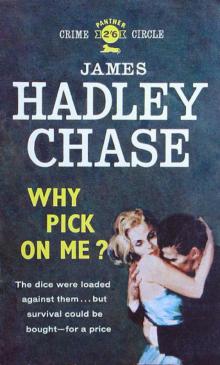 Why Pick On ME?
Why Pick On ME?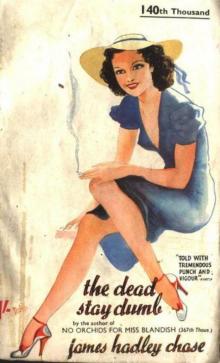 The Dead Stay Dumb
The Dead Stay Dumb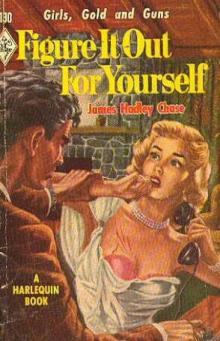 Figure it Out For Yourself
Figure it Out For Yourself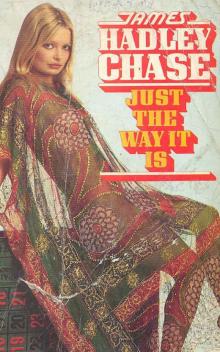 1944 - Just the Way It Is
1944 - Just the Way It Is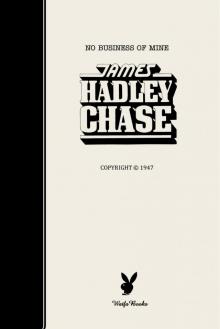 No Business Of Mine
No Business Of Mine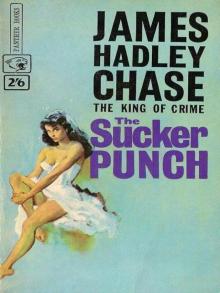 1953 - The Sucker Punch
1953 - The Sucker Punch Cade
Cade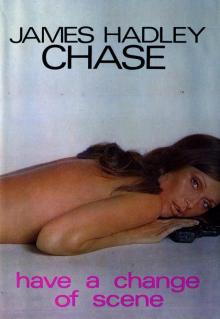 1973 - Have a Change of Scene
1973 - Have a Change of Scene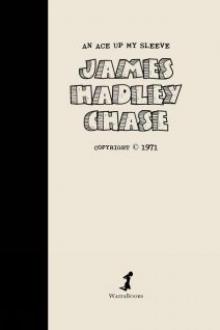 An Ace up my Sleeve
An Ace up my Sleeve 1968-An Ear to the Ground
1968-An Ear to the Ground 1950 - Figure it Out for Yourself
1950 - Figure it Out for Yourself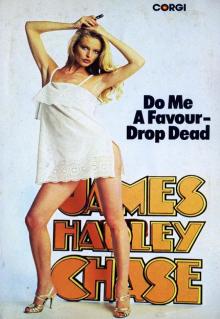 1976 - Do Me a Favour Drop Dead
1976 - Do Me a Favour Drop Dead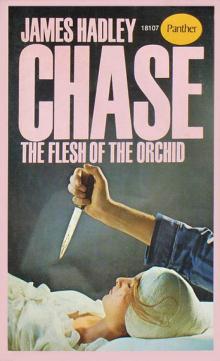 The Flesh of The Orchid
The Flesh of The Orchid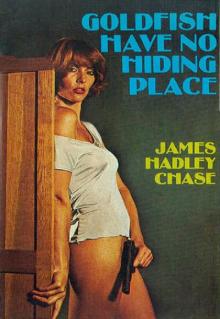 1974 - Goldfish Have No Hiding Place
1974 - Goldfish Have No Hiding Place Whiff of Money
Whiff of Money 1984 - Hit Them Where it Hurts
1984 - Hit Them Where it Hurts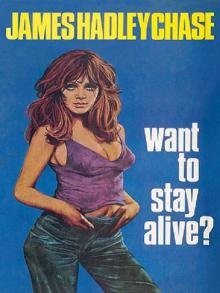 1971 - Want to Stay Alive
1971 - Want to Stay Alive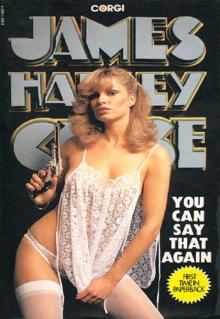 1980 - You Can Say That Again
1980 - You Can Say That Again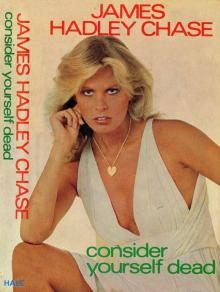 1978 - Consider Yourself Dead
1978 - Consider Yourself Dead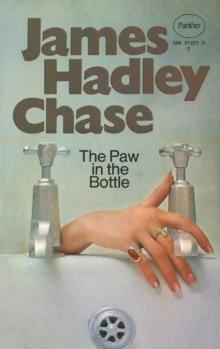 The Paw in The Bottle
The Paw in The Bottle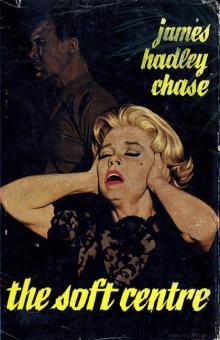 Soft Centre
Soft Centre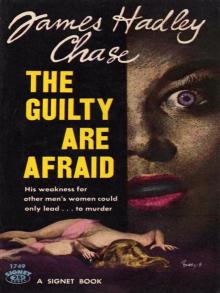 The Guilty Are Afraid
The Guilty Are Afraid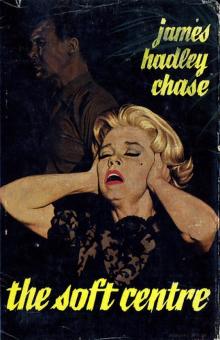 The Soft Centre
The Soft Centre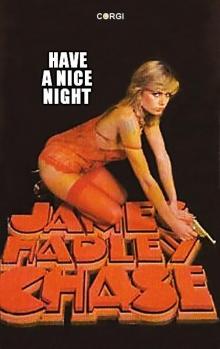 Have a Nice Night
Have a Nice Night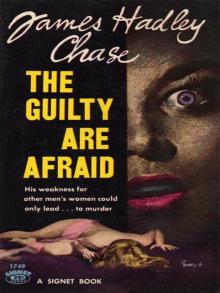 1957 - The Guilty Are Afraid
1957 - The Guilty Are Afraid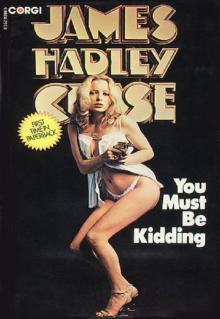 1979 - You Must Be Kidding
1979 - You Must Be Kidding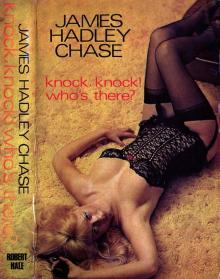 Knock, Knock! Who's There?
Knock, Knock! Who's There?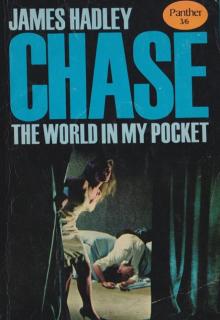 1958 - The World in My Pocket
1958 - The World in My Pocket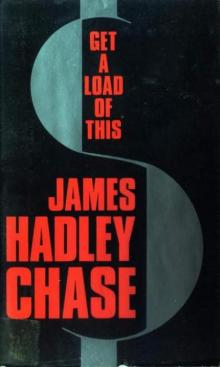 Get a Load of This
Get a Load of This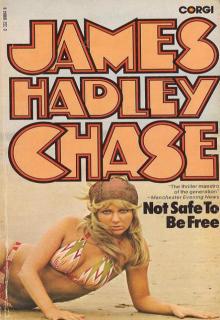 1958 - Not Safe to be Free
1958 - Not Safe to be Free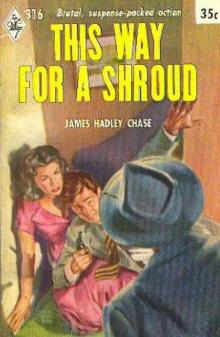 This Way for a Shroud
This Way for a Shroud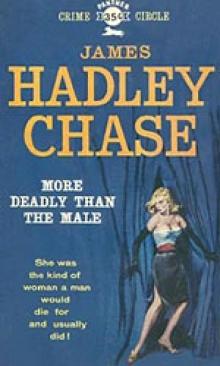 More Deadly Than the Male
More Deadly Than the Male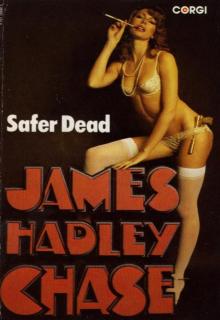 Safer Dead
Safer Dead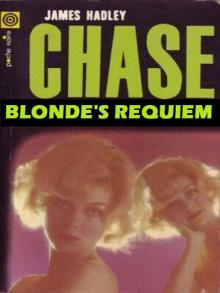 1945 - Blonde's Requiem
1945 - Blonde's Requiem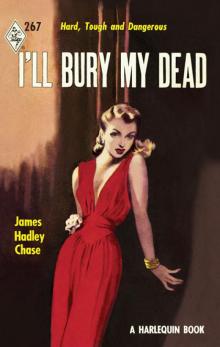 I'll Bury My Dead
I'll Bury My Dead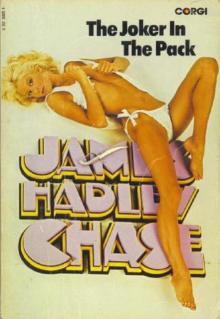 1975 - The Joker in the Pack
1975 - The Joker in the Pack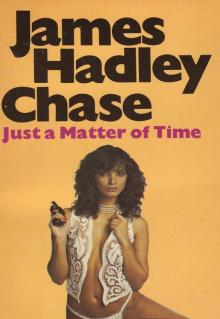 1972 - Just a Matter of Time
1972 - Just a Matter of Time 1954 - Mission to Venice
1954 - Mission to Venice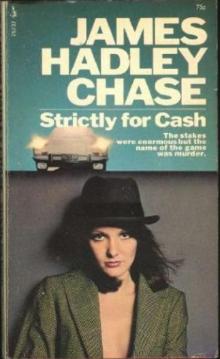 Strictly for Cash
Strictly for Cash A COFFIN FROM HONG KONG
A COFFIN FROM HONG KONG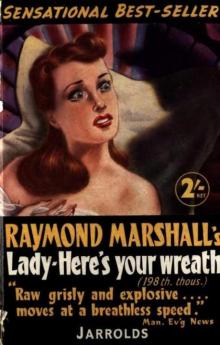 Lady—Here's Your Wreath
Lady—Here's Your Wreath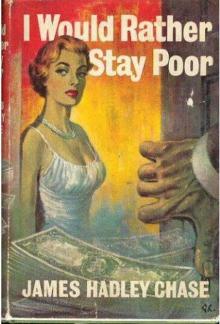 I Would Rather Stay Poor
I Would Rather Stay Poor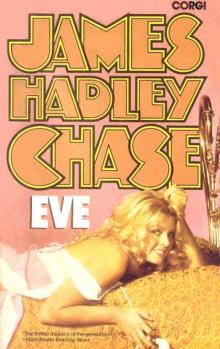 Eve
Eve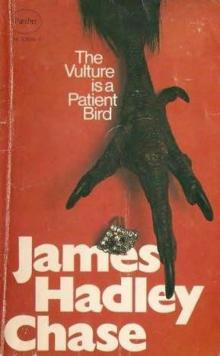 Vulture Is a Patient Bird
Vulture Is a Patient Bird 1979 - A Can of Worms
1979 - A Can of Worms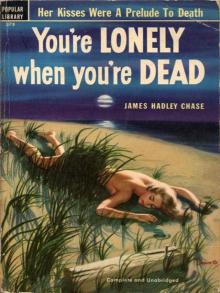 1949 - You're Lonely When You Dead
1949 - You're Lonely When You Dead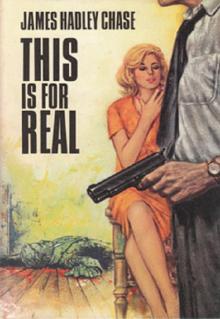 1965 - This is for Real
1965 - This is for Real (1941) Miss Callaghan Comes To Grief
(1941) Miss Callaghan Comes To Grief What`s Better Than Money
What`s Better Than Money This is For Real
This is For Real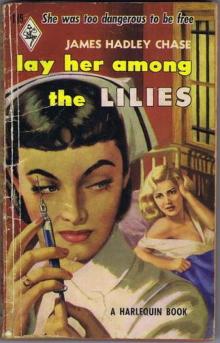 Lay Her Among the Lilies vm-2
Lay Her Among the Lilies vm-2 Knock Knock Whos There
Knock Knock Whos There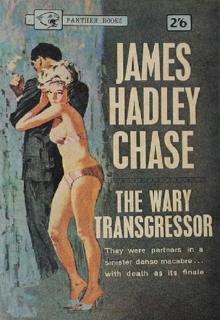 1952 - The Wary Transgressor
1952 - The Wary Transgressor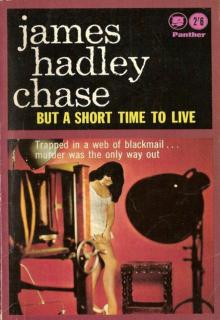 1951 - But a Short Time to Live
1951 - But a Short Time to Live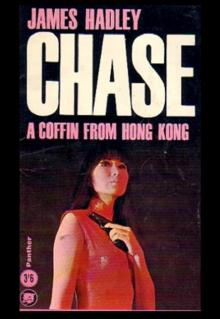 1962 - A Coffin From Hong Kong
1962 - A Coffin From Hong Kong Tell It to the Birds
Tell It to the Birds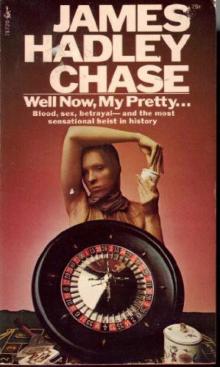 Well Now, My Pretty…
Well Now, My Pretty…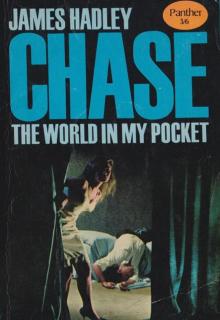 The World in My Pocket
The World in My Pocket A Lotus for Miss Quon
A Lotus for Miss Quon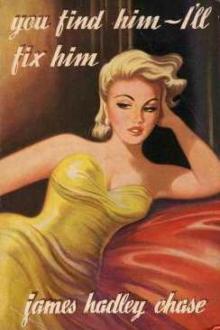 You Find Him, I'll Fix Him
You Find Him, I'll Fix Him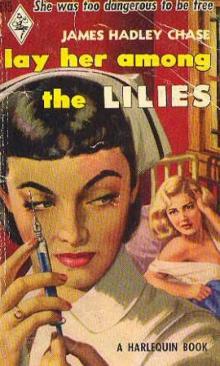 Lay Her Among The Lilies
Lay Her Among The Lilies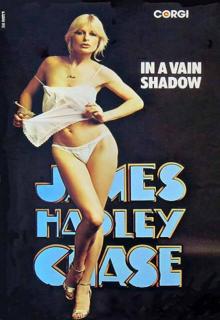 1951 - In a Vain Shadow
1951 - In a Vain Shadow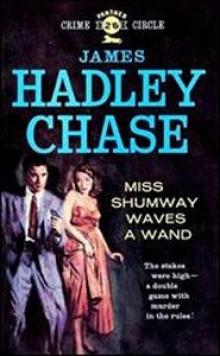 Miss Shumway Waves a Wand
Miss Shumway Waves a Wand 1953 - This Way for a Shroud
1953 - This Way for a Shroud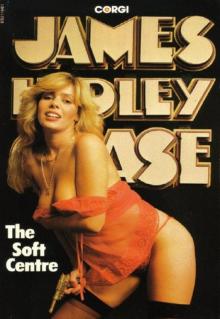 1964 - The Soft Centre
1964 - The Soft Centre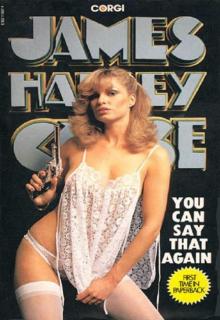 You Can Say That Again
You Can Say That Again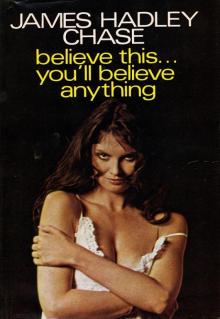 1975 - Believe This You'll Believe Anything
1975 - Believe This You'll Believe Anything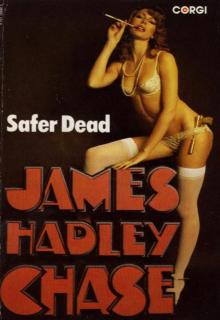 1954 - Safer Dead
1954 - Safer Dead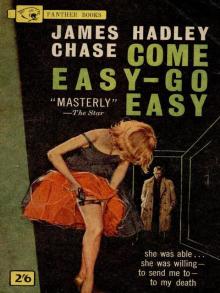 1960 - Come Easy, Go Easy
1960 - Come Easy, Go Easy Shock Treatment
Shock Treatment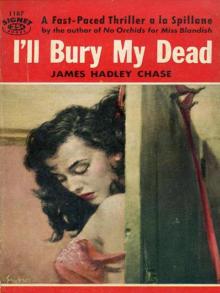 1953 - I'll Bury My Dead
1953 - I'll Bury My Dead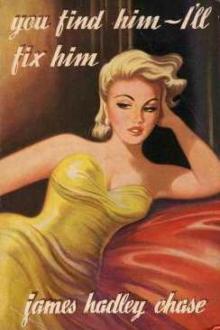 You Find Him – I'll Fix Him
You Find Him – I'll Fix Him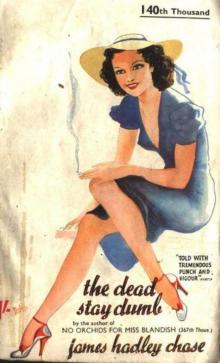 Dead Stay Dumb
Dead Stay Dumb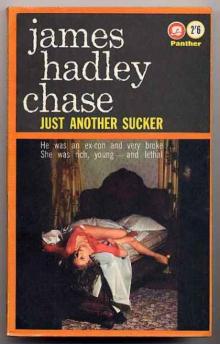 Just Another Sucker
Just Another Sucker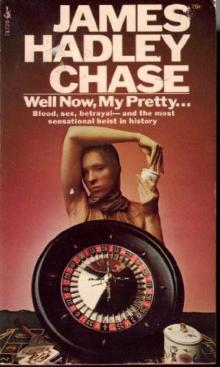 Well Now My Pretty
Well Now My Pretty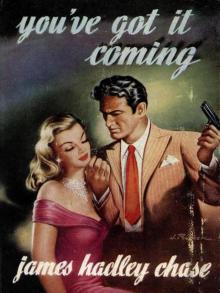 You've Got It Coming
You've Got It Coming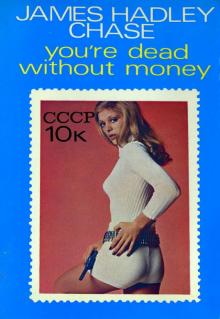 1972 - You're Dead Without Money
1972 - You're Dead Without Money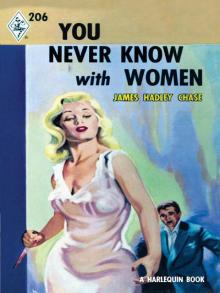 1955 - You Never Know With Women
1955 - You Never Know With Women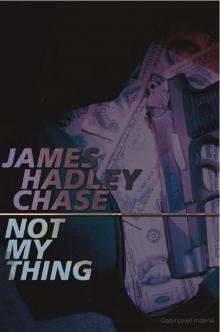 Not My Thing
Not My Thing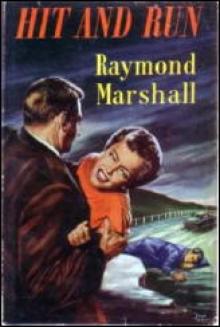 Hit and Run
Hit and Run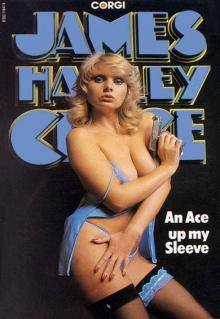 1971 - An Ace Up My Sleeve
1971 - An Ace Up My Sleeve 1970 - There's a Hippie on the Highway
1970 - There's a Hippie on the Highway 1968 - An Ear to the Ground
1968 - An Ear to the Ground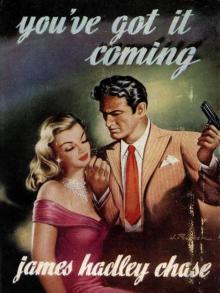 1955 - You've Got It Coming
1955 - You've Got It Coming 1963 - One Bright Summer Morning
1963 - One Bright Summer Morning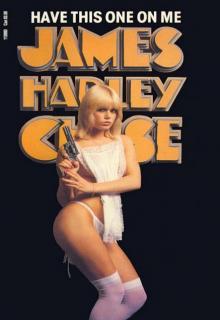 1967 - Have This One on Me
1967 - Have This One on Me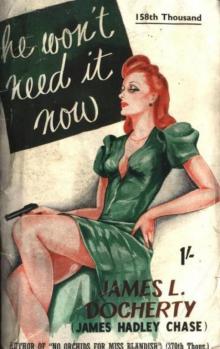 He Won't Need It Now
He Won't Need It Now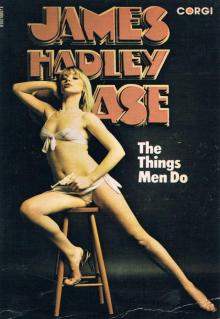 1953 - The Things Men Do
1953 - The Things Men Do Believed Violent
Believed Violent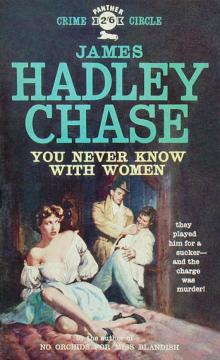 You Never Know With Women
You Never Know With Women Miss Callaghan Comes to Grief
Miss Callaghan Comes to Grief Mission to Siena
Mission to Siena What's Better Than Money
What's Better Than Money Trusted Like The Fox
Trusted Like The Fox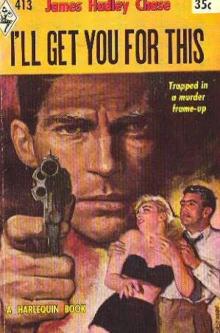 I'll Get You for This
I'll Get You for This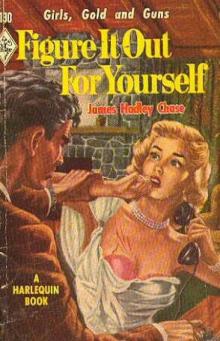 Figure It Out for Yourself vm-3
Figure It Out for Yourself vm-3 Like a Hole in the Head
Like a Hole in the Head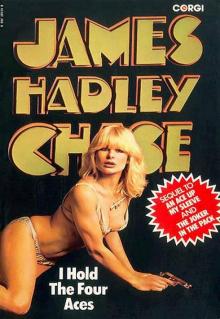 1977 - I Hold the Four Aces
1977 - I Hold the Four Aces 1969 - The Whiff of Money
1969 - The Whiff of Money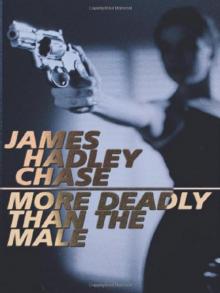 1946 - More Deadly than the Male
1946 - More Deadly than the Male 1956 - There's Always a Price Tag
1956 - There's Always a Price Tag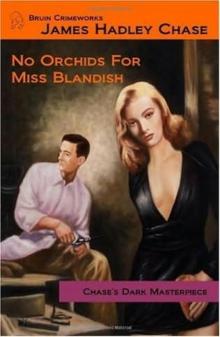 No Orchids for Miss Blandish
No Orchids for Miss Blandish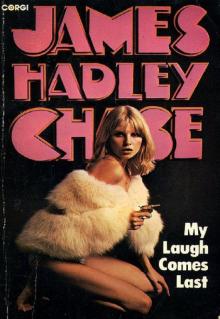 1977 - My Laugh Comes Last
1977 - My Laugh Comes Last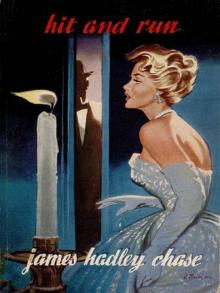 1958 - Hit and Run
1958 - Hit and Run 1981 - Hand Me a Fig Leaf
1981 - Hand Me a Fig Leaf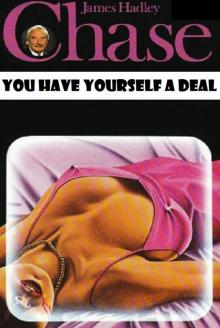 1966 - You Have Yourself a Deal
1966 - You Have Yourself a Deal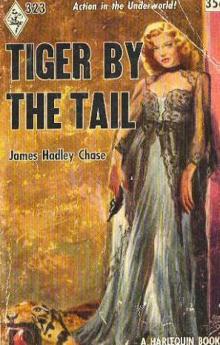 Tiger by the Tail
Tiger by the Tail